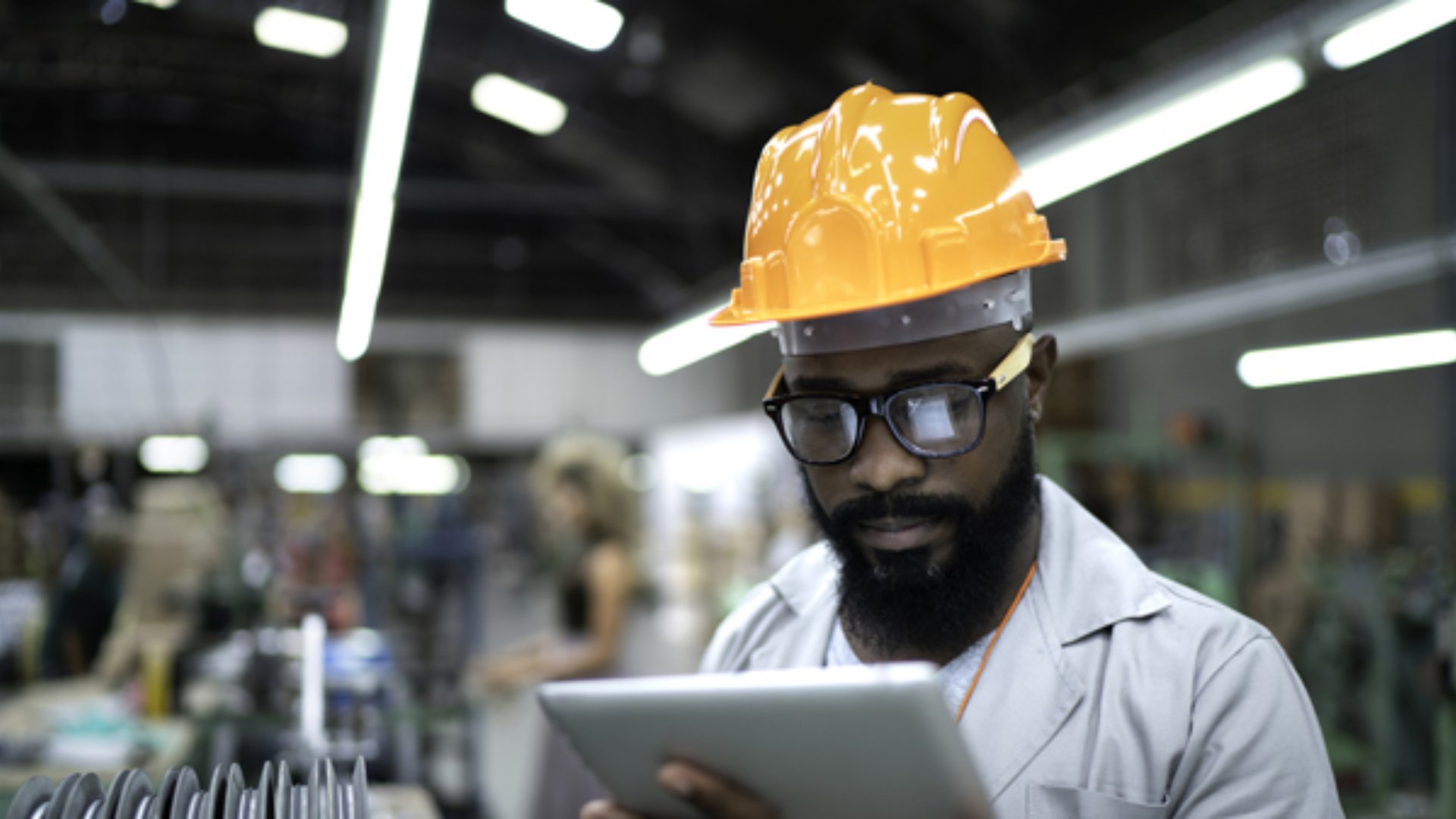CAREERS
The start-up driving the construction industry’s digital transformation
April 30, 2021
CAREERS
April 30, 2021
Earwig’s Harrison Moore explains how his platform, with the help of Accenture’s Workertech Partnership, is putting power back in the hands of the UK’s labour force.


Working as an electrician may have helped Harrison Moore pay his way through art school, but he doesn’t have the fondest memories of his part time job.
“It was often cold, wet and physically demanding,” says Harrison, the founder of earwig, a digital platform that aims to democratise access to job site information for construction workers.
But the biggest challenge has been the dearth of basic information, Harrison explains. Labouring as an itinerant electrician could feel disempowering as he often arrived at job sites with little, or even incorrect, information about the length of the contract he’d been hired for, the rate of pay, the skills and equipment required, or the welfare and safety record of the site. Harrison found he couldn’t make informed decisions about his own employment.
His startup is designed to change all that. By allowing verified construction workers to anonymously rate sites and contractors, earwig will put information in the hands of workers and fast-track the construction industry into the digital age.
Earwig is one of several startups supported by Accenture UK through the Workertech Partnership. By teaming up with the independent think-tank The Resolution Foundation, co-funders the Ufi Trust, Friends Provident Foundation, Joseph Rowntree Foundation, Trust for London and the tech-for-good investor Bethnal Green Ventures, Accenture is helping to fund tech start-ups that aim to solve significant problems in the UK’s labour market.
The construction industry is ripe for transformation, Harrison says, comparing his platform to Glassdoor, but for non-office workers. The sector is behind on digitisation, which hinders workers from accessing accurate details about work opportunities and makes it harder for contractors to recruit the right people. Plus, failing to retain workers increases costs and delays.
Filling that information gap offers an opportunity to both workers and the industry, he adds.
During the six years he spent studying fine art at the Royal College of Art (RCA) and Central Saint Martins, Harrison found work in construction through recruitment agencies. Connecting with employers through a third party made it even more challenging to access the relevant information he needed to make decisions. He found there was little support.
These challenges impact the mental health of many workers in the industry.
Harrison has personally worked alongside hundreds of people, mostly men, who have suffered similar problems. Not only did they lack basic information, they didn’t understand their own employment status, or know their rights or how to enforce them. Harrison hopes that by sharing knowledge with one another, using technology as an enabler, workers can find a new sense of control and provide feedback that creates industry-wide change.
Harrison notes that construction giants are eager to improve their relationship with workers, and the reception to earwig has been positive. A multinational construction company participated in earwig’s pilot project.
The timing for contractors is ideal, he adds. The effects of COVID-19 and Brexit have combined to reduce the construction workforce, and contractors are seeking solutions to improve their ability to compete. Their interest in the project indicates revenue potential for the startup.


With support from Accenture UK and the Resolution Trust, earwig earned a coveted spot on the Bethnal Green Ventures Accelerator Program, which came with the investment and connections he needed to launch a prototype in 2020.
Though earwig hasn’t yet been marketed to users because of the pandemic, Harrison is now working on hiring a team and building a sustainable business model that depends mainly on contractors for revenue. In today’s highly competitive labour landscape, Harrison says large contractors know they need to work harder to attract and retain competent tradespeople. And they’re willing to invest in tools that help.
Earwig was given a spot in the accelerator because its impact could go beyond changing the lives of the workers who use it, says Louise Marston, Director of Ventures at The Resolution Foundation. “It could change the whole ecosystem of labour in the trades.”
The Workertech Partnership officially launched in 2020, but it existed as a pilot programme prior to COVID-19, Louise explains. The need for Workertech predated the pandemic because the world of work was already facing transformational change due to increased automation and widespread precarity.
In addition to earwig, the Workertech pilot also supported Breakroom, which brings ratings and reviews to hourly work in retail and delivery driving. Tendo helps people to document on-the-job skills and prove them to future employers. And Upskill Me works with students to develop skills and connect them with employers. The new Workertech Partnership is aiming to support a further 20 ventures.
The pandemic has highlighted how exposed low-paid workers are to changes in hours, lack of health protections, and few flexible opportunities that work for families. But those issues won’t be resolved by a vaccine, and that’s why collaborating with organisations such as Accenture to support the Workertech Partnership is so important now.
“The people who suffer discrimination the most are the people with the least power,” Louise says. “The more we can level the playing field, the better.”
Find out more about the Workertech Partnership here.
Read how we are creating positive impact in the UK for our people, our communities and our planet.
Copyright © 2023 Accenture. All rights reserved
This document makes descriptive reference to trademarks that may be owned by others. The use of such trademarks herein is not an assertion of ownership of such trademarks by Accenture and is not intended to represent or imply the existence of an association between Accenture and the lawful owners of such trademarks.